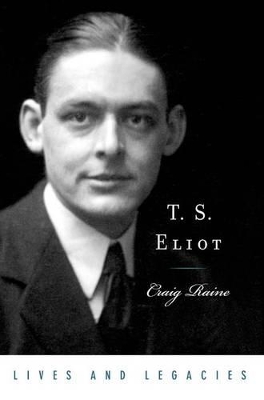Lives and Legacies
1 total work
The twentieth century's most famous poet and its most influential literary arbiter, T.S. Eliot has long been thought to be an obscure and difficult writer-forbiddingly learned, maddeningly enigmatic. In this compelling exploration, prize-winning poet Craig Raine finds a way to read and make sense of Eliot's full corpus. He illuminates a paradoxical Eliot—an exacting anti-romantic realist, skeptical of the emotions, yet incessantly troubled by the fear of emotional
failure—through close readings of his poetry, with extended analyses of Eliot's two master works—The Waste Land and Four Quartets. Raine also examines Eliot's criticism—including his coinage of such key literary terms as the objective correlative, dissociation of sensibility, the auditory
imagination, and his biography, crafting a book that provides a concise introduction for beginners and a provocative set of arguments for Eliot admirers.
failure—through close readings of his poetry, with extended analyses of Eliot's two master works—The Waste Land and Four Quartets. Raine also examines Eliot's criticism—including his coinage of such key literary terms as the objective correlative, dissociation of sensibility, the auditory
imagination, and his biography, crafting a book that provides a concise introduction for beginners and a provocative set of arguments for Eliot admirers.
